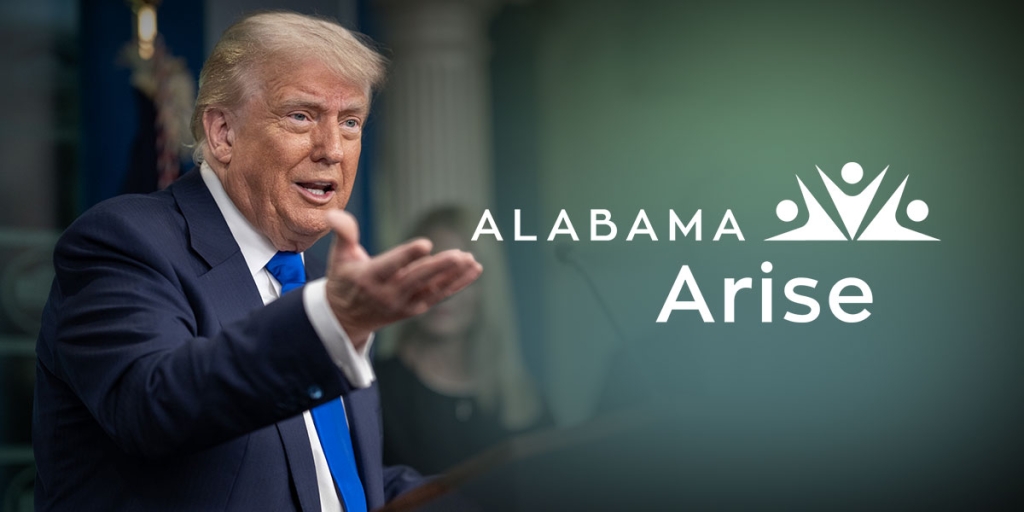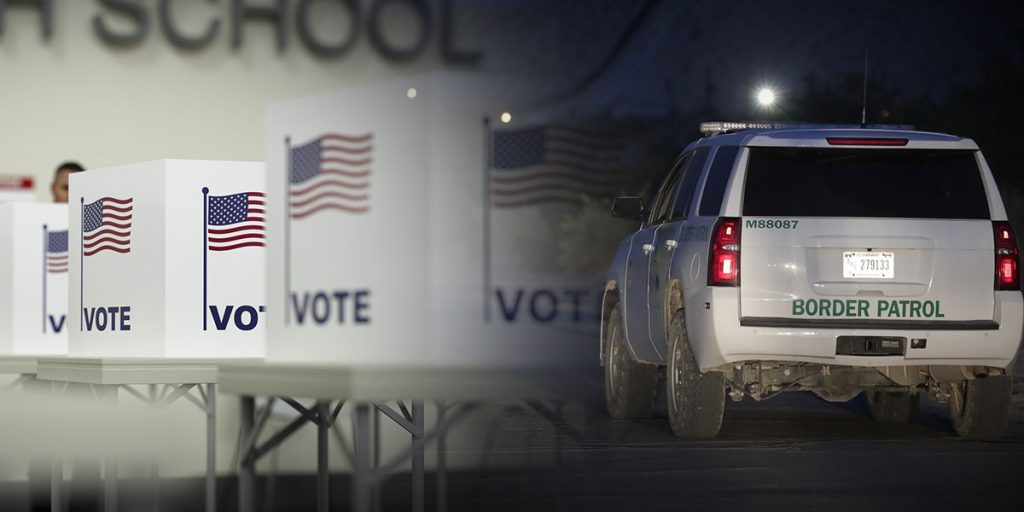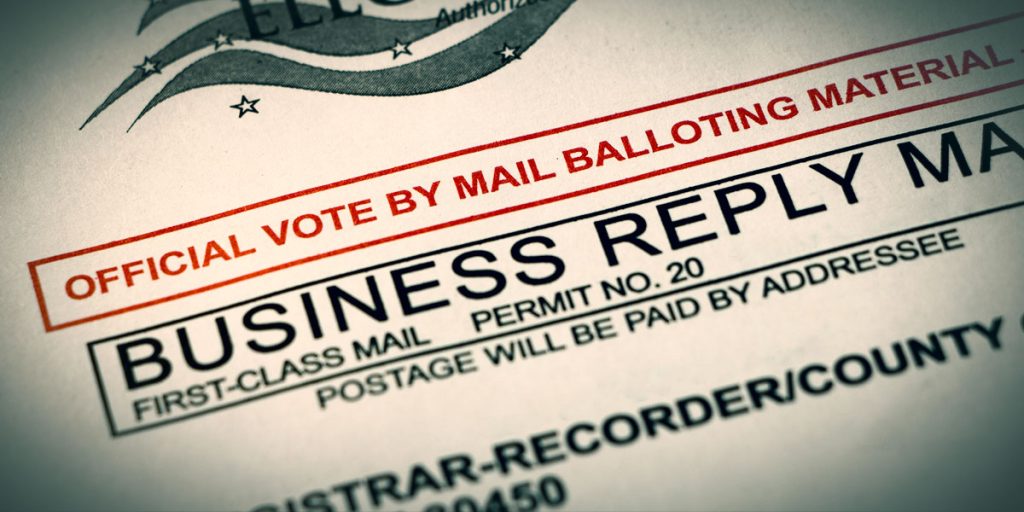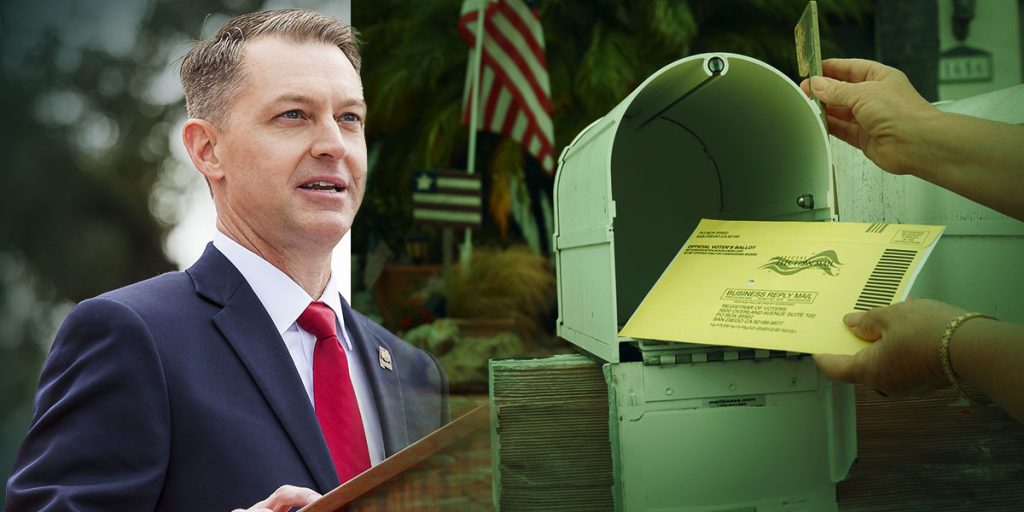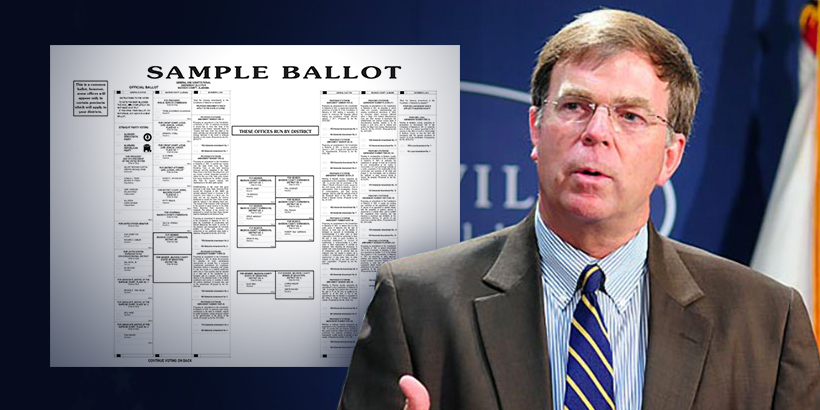
When Alabama voters head to the polls on November 8th, they won’t just be electing a president; they will approve or reject 14 Constitutional amendments. If you need help navigating issues on the ballot, check out our guide below.
Amendment 1
What it says: “Proposing an amendment to the Constitution of Alabama of 1901, to establish procedures to ensure that no more than three of the members of the Auburn University Board of Trustees shall have terms that expire in the same calendar year and to add two additional at-large members to the board to enhance diversity on the board.”
In a nutshell: Amendment 1 adds two new board members to the Auburn University Board of Trustees, and also ensures that the terms of no more than three members’ terms will expire at the same time.
Amendment 2
What it says: “Proposing an amendment to the Constitution of Alabama of 1901, to prohibit any monies from the State Parks Fund, the Parks Revolving Fund, or any fund receiving revenues currently deposited in the State Parks Fund or the Parks Revolving Fund, and any monies currently designated pursuant to statute for the use of the state parks system from being transferred for another purpose other than the support, upkeep, and maintenance of the state parks system.”
“Notwithstanding, in the event that guest revenues to the State Parks Revolving Fund exceed the threshold of $50 million (as annually adjusted based on increases in the consumer price index) in a fiscal year, the sales and use and cigarette tax revenue distributed to benefit the State Parks System shall be reduced in the following fiscal year. The amount of the reduction shall correspond to the amount of guest revenue to the State Parks Revolving Fund exceeding the threshold. The amount of tax revenue not distributed to benefit the State Parks System shall be distributed to the General Fund.”
“Proposing an amendment to Amendment 617 of the Constitution of Alabama of 1901, to allow the Department of Conservation and Natural Resources the option to provide for the operation and management, by non-state entities, of hotels, golf courses, and restaurants at any applicable state parks in Alabama.”
In a nutshell: Amendment 2 restricts the state legislature from dipping into funds generated by state parks. It would constitutionally require that monies be spent on maintaining those parks, unless revenues top $50 million annually.
Amendment 3
What it says: “Proposing an amendment to the Constitution of Alabama of 1901, to revise the procedure for adoption of local constitutional amendments to provide that a proposed constitutional amendment the Legislature determines without a dissenting vote applies to only one county or a political subdivision within one or more counties shall be adopted as a valid part of the constitution by a favorable vote of a majority of the qualified electors of the affected county or the political subdivision and county or counties in which the political subdivision is located, who vote on the amendment.”
In a nutshell: Amendment 3 institutes a new procedure to determine whether a constitutional amendment should be voted on by the entire state or by the affected community only.
Amendment 4
What it says: “Proposing an amendment to the Constitution of Alabama of 1901, to authorize each county commission in the state to establish, subject to certain limitations, certain programs related to the administration of the affairs of the county.”
In a nutshell: Amendment 4 would expand local power by giving counties the ability to create new policies that apply to public transportation, road safety, emergency assistance, and personnel. It does not give county officials any new power or compensation. This amendment also prohibits new taxes, fees or programs from being instituted that would hinder a landowner’s legal rights to use their property, with the exception of legislative intervention.
Amendment 5
What it says: “Proposing an amendment to the Constitution of Alabama of 1901, to repeal and restate the provisions of Article III of the Constitution of Alabama of 1901 relating to separation of powers to modernize the language without making any substantive change, effective January 1, 2017.”
In a nutshell: Amendment 5 cleans up and updates outdated terminology in Article III of the state constitution.
Amendment 6
What it says: “Proposing an amendment to the Constitution of Alabama of 1901, to become operative January 1, 2017, to repeal and replace Article VII, Impeachments.”
In a nutshell: Amendment 6 would require a two-thirds vote of the Alabama Senate to impeach a public official, and subjects members of the Board of Education to impeachment. It does not change the reasons why an elected official can be impeached.
Amendment 7 (Local)
What it says: “Relating to Etowah County, proposing an amendment to the Constitution of Alabama of 1901, to provide that the employees of the Office of Sheriff of Etowah County, except for the chief deputy, chief of detention, chief of administration, chief of investigation, director of communications, and food service manager, shall be under the authority of the Personnel Board of the Office of the Sheriff of Etowah County.”
In a nutshell: Amendment 7 would only apply to Etowah County, and make certain county employees subject to the authority of the Personnel Board of the Office of the Sheriff of Etowah County.
Amendment 8
What it says: “Proposing an amendment to the Constitution of Alabama of 1901, to declare that it is the public policy of Alabama that the right of persons to work may not be denied or abridged on account of membership or nonmembership in a labor union or labor organization; to prohibit an agreement to deny the right to work, or place conditions on prospective employment, on account of membership or nonmembership in a labor union or labor organization; to prohibit an employer from requiring its employees to abstain from union membership as a condition of employment; and to provide that an employer may not require a person, as a condition of employment or continuation of employment, to pay dues, fees, or other charges of any kind to any labor union or labor organization.”
In a nutshell: Amendment 8 would solidify the state’s “right-to-work” status into the constitution, making it difficult in the future for unions to force membership on Alabama workers as a condition of employment.
Amendment 9 (Local)
What it says: “Relating to Pickens County, proposing an amendment to the Constitution of Alabama of 1901, to provide that a person who is not over the age of 75 at the time of qualifying for election or at the time of his or her appointment may be elected or appointed to the office of Judge of Probate of Pickens County.”
In a nutshell: Amendment 9 applies to Pickens County only. It would allow a Probate Judge to serve until the age of 75 (the current age is 70).
Amendment 10 (Local)
What it says: “Relating to Calhoun County, proposing an amendment to the Constitution of Alabama of 1901, to provide that any territory located in the county would be subject only to the police jurisdiction and planning jurisdiction of a municipality located wholly or partially in the county.”
In a nutshell: Amendment 10 applies to Calhoun County only. If passed, it would prevent any city or town not in or partially in Calhoun from exercising jurisdiction over any area of the county.
Amendment 11
What it says: “Proposing an amendment to the Constitution of Alabama of 1901, as amended, to permit cities and counties, notwithstanding any existing constitutional restrictions, to utilize tax increment district revenues collected within a Major 21st Century Manufacturing Zone and other moneys to incentivize the establishment and improve various types of manufacturing facilities located or to be located in such Zone, and to validate and confirm the Major 21st Century Manufacturing Zone Act, Act No. 2013-51.”
In a nutshell: Amendment 11 allows cities and counties to sell government-owned land within a certain type of development zone below fair market value for the purpose of economic development.
Amendment 12 (Local)
What it says: “Relating to municipalities in Baldwin County; proposing an amendment to the Constitution of Alabama of 1901, to authorize the Legislature by general or local law to provide for any municipalities in the county to incorporate a toll road and bridge authority as a public corporation in the municipality for the construction and operation of toll roads and bridges in the municipality and to authorize the authority to issue revenue bonds to finance the projects.”
In a nutshell: Amendment 12 allows the legislature to create a toll and bridge authority for a city or town in Baldwin County. The authority would have the power to finance its projects and accept funding from state or local governments.
Amendment 13
What it says: “Proposing an amendment to the Constitution of Alabama of 1901, to repeal any existing age restriction on the appointment, election, or service of an appointed or elected official, with the exception of persons elected or appointed to a judicial office, currently imposed by a provision of the Constitution or other law; and to prohibit the Legislature from enacting any law imposing a maximum age limitation on the appointment, election, or service of an appointed or elected official.”
In a nutshell: Amendment 13 eliminates maximum age restrictions that currently apply to the election or appointment of non-judicial elected officials.
Amendment 14
What it says: “Proposing an amendment to the Constitution of Alabama of 1901, to amend Amendment 448 to the Constitution of Alabama of 1901, now appearing as Section 71.01 of the Official Recompilation of the Constitution of Alabama of 1901, as amended, to ratify, approve, validate, and confirm the application of any budget isolation resolution relating to a bill proposing a local law adopted by the Legislature before November 8, 2016, that conformed to the rules of either body of the Legislature at the time it was adopted.”
In a nutshell: Currently, legal questions over “budget isolation resolution” votes threaten a wide array of local laws. Amendment 14 seeks to protect the validity of over 500 local laws that have passed between 1984 and 2016, as long as they were approved using proper legislative rules at the time of their passage.





